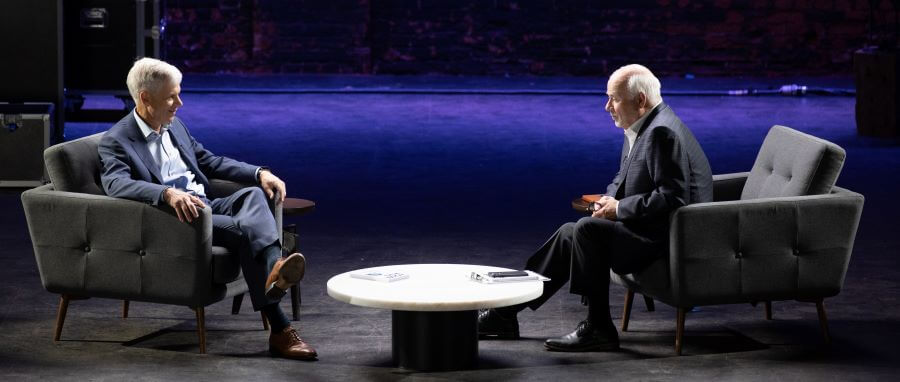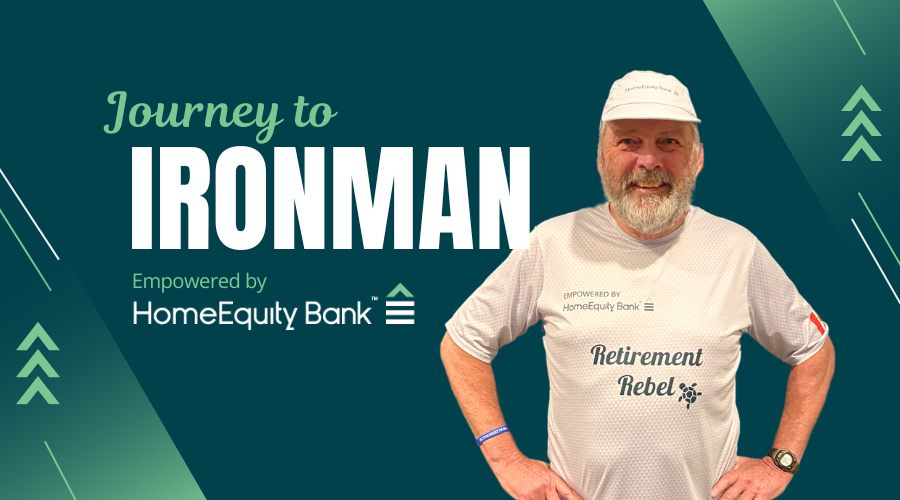By Joyce Wayne
The first Facebook video in the HomeEquity Bank series “Peter Mansbridge In Conversation” is about dispelling myths and presenting the facts about the CHIP Reverse Mortgage, including:
- Is the CHIP Reverse Mortgage federally regulated?
- Will I lose title and ownership of my home?
- How much money can I borrow?
- Do I need a lawyer?
Facts over Myth about the CHIP Reverse Mortgage
When award-winning journalist and Canadian icon Peter Mansbridge interviewed HomeEquity Bank’s President and CEO Steven Ranson, they got right down to business in a face-to-face interview dispelling the myths and presenting the facts about the CHIP Reverse Mortgage. Mansbridge asked Ranson if he’d seen any of the interview questions in advance, and the answer was absolutely not – although Ranson joked that he wished he had.
First, Mansbridge asked if HomeEquity Bank was regulated by the same federal regulations as the big banks. The unequivocal answer is yes. “We definitely want to have the same regulations as the big banks,” said Ranson.
Second, when asked if a reverse mortgage is for everyone, Ranson replied by saying, “No product is for everyone.” He explained the CHIP Reverse Mortgage is designed for those who wish to remain in their homes for nine to 12 years. If the homeowner plans to only stay in their home for one to two years, they are better off with a regular mortgage or a line of credit if they can afford it.
Third, the question about interest rates popped up. Mansbridge asked if reverse mortgage rates are higher than big bank interest rates. “Yes,” said Ranson. “You get what you pay for. Home Equity takes a long-term risk that the value of your home will be more than the mortgage when the property is sold.” In fact, 99 percent of customers will be left with 50 percent or more of the proceeds from the sale of their home. The average loan is now $180,000, with the reverse mortgage capped at 57 percent of the home’s value.
Mansbridge’s concluding question was about lawyers. Each customer needs a lawyer as the last step in arranging a CHIP reverse mortgage, Ranson explained. HomeEquity Bank insists on this legal advice, so every homeowner benefits from the independent advice of their lawyer. “We want fully informed clients,” adds Ranson.
As the interview came to a close, Ranson remarked, “This is a product whose time has come.” I can’t imagine a better way of describing today’s reverse mortgage and what a difference it’s making in the lives of older Canadians who do not wish to leave the homes they love.
This mortgage is created to help older Canadians who have spent years paying down the original mortgage on their home and maintaining or improving the condition of their home while working hard to do both. As the price of homes continues to rise in this country, the value of our homes has become, for most of us, our most powerful financial asset and the one that can help us enjoy our lives as we age.
At the same time, the COVID pandemic has revealed shortcomings in long-term care facilities across Canada. I don’t know a single person my age who wishes to leave their home for a care facility. As Canadians review their options for aging in place, reverse mortgages have become a most reliable resource for anyone who owns their own home and wishes to secure the funds to afford the safe, pleasant environment that they know best: their home.
To enjoy Peter Mansbridge interviewing Steven Ranson, click on this link: watch the replay.
 |







